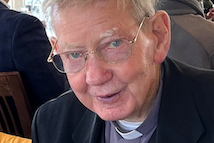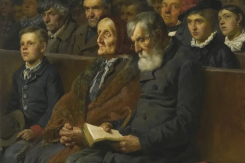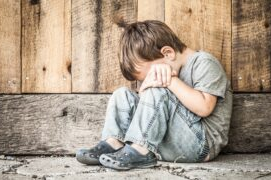Local elections: Catholics urged to vote for the common good
With local elections about to take place next week, Tom Horwood, a former head of the Catholic media office now working in local government, urges Catholics to get involved in local politics. He also suggests that parishes say a bidding prayer next Sunday for local councillors and council staff. He writes: Much of Britain has the important opportunity to choose their local councillors on Thursday, 1 May. And yet, in other parts of the country, only one in three people voted in local elections last year. While General Elections receive months of media attention and long campaigns, local politics is usually greeted with apathy. Whether at election time or not, Catholics have a duty to be aware of local politics. The Vatican recently stated: 'The life of a democracy could not be productive without the active, responsible and generous involvement of everyone'. This article asks why get involved and how? The first answer to why Catholics should care comes from the teaching of the Church since the time of Jesus. A central part of the Gospel is that Christians should love and care for their fellow humans. Over the past century, the Catholic Church has developed a set of social teachings under the general umbrella of 'the common good'. This means not just looking out for ourselves, but acting in the best interests of the community as a whole, and helping everyone to reach their full potential. One of the planks of this teaching is that the first duty of government is to care for the weakest and most disadvantaged. Whether we are in that category or not, as Christians we must have an interest in how local government fulfils this mandate. The Church's social teaching has been spelled out in more detail by the bishops in their pre-General Election statement, Vote for the Common Good, which is available at: www.catholic-ew.org.uk. Essentially it could be summed up in the principle that we are all responsible for all. The second answer is that local councils have a huge impact on many people's lives - in fact, for many, more impact than the central government has. Unfortunately, the structure of local government can be confusing. While some parts of the country have one council providing services for the whole area, elsewhere there may be a county council as well as smaller district and town councils. The services provided are very important but easily taken for granted. Through their social services departments, councils care for the most vulnerable members of the community. These may be children awaiting adoption or in fostering, people with disabilities, the elderly or families in need. Older people benefit from day centres, housing, meals on wheels or permits for free travel. For other vulnerable people advice and practical help is available for avoiding homelessness, supporting children with special needs or preventing youth crime. Many local councils are also local education authorities, and so have a real say in how schools are run and funded. The most direct way that most people use a council service is when their rubbish is collected. In recent years, the Church has highlighted the importance of the environment on the global stage. Crucial work can also be done by local councils to make waste disposal less harmful, to increase recycling and to reduce the amount of waste produced. They are also guardians of the green belt, making decisions on whether and where new building developments can take place. Among other responsibilities held by local government are the upkeep of parks, streets, leisure centres and libraries, which all go towards improving quality of life and increasing social inclusion. Additionally, they have an important role in encouraging the development of local businesses and reducing unemployment. On all of these issues, policy and spending priorities are set by the elected councillors who should consult with and listen to local people. How can Catholics get involved? Before the last General Election, the bishops said that all adults have a moral duty to exercise their vote and to use it for the common good. With so few people voting locally, minorities have greater influence. This is why the Greens and, more worrying, the British National Party have had some success. It is, therefore, even more important that people who care about the common good take advantage of this basic democratic right. There is a danger that local elections become a referendum on how the national Government is doing. This should be avoided. There is still time to find out about local candidates, priorities and promises; at this year's elections, make the cross count! A second step in getting involved is to learn more about the council. The local media is a good source of timely information. Every local council also has a website, accessible via www.ukonline.gov.uk. Libraries are a valuable resource at which council reports and publications are available. Thirdly, attend some of the meetings. Most of these are held in public, and the agendas are published in advance. Find out who your local councillors are and write to or telephone them; they are in post precisely to represent local people on local issues. Fourthly, consider standing for office as a councillor or getting involved in a local political party, or perhaps seeking employment in the council in a non-political role. Finally, pray for your local councillors and council staff, who often have to make hard decisions in difficult circumstances. Perhaps a bidding prayer could be said at Mass next Sunday, before the elections. The importance of local politics tends to be neglected by the media and even by the Church. Instead of just grumbling about recent council tax rises, find out what you can do to promote the common good in your local community. This article was first written for the Universe newspaper..


















